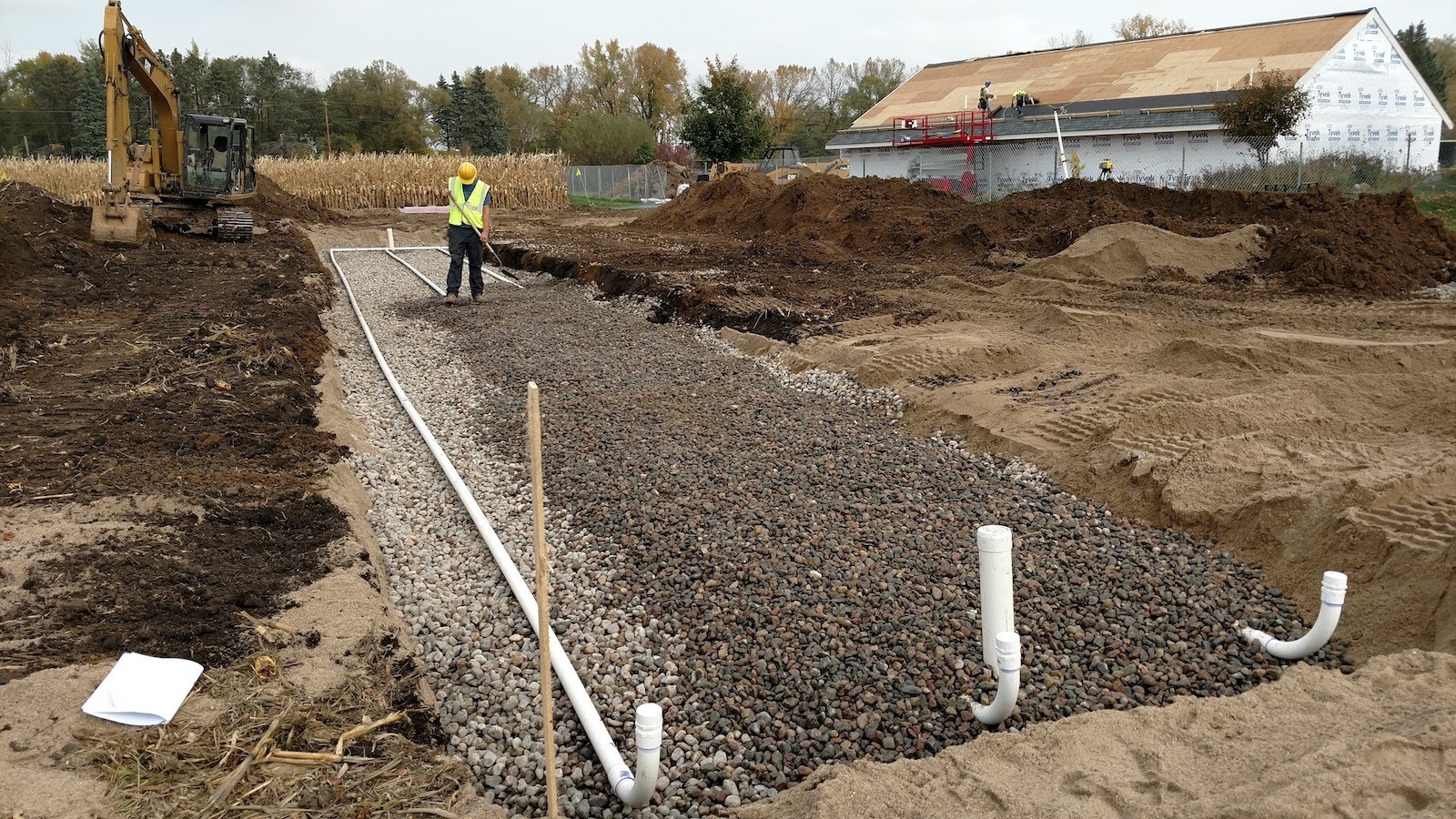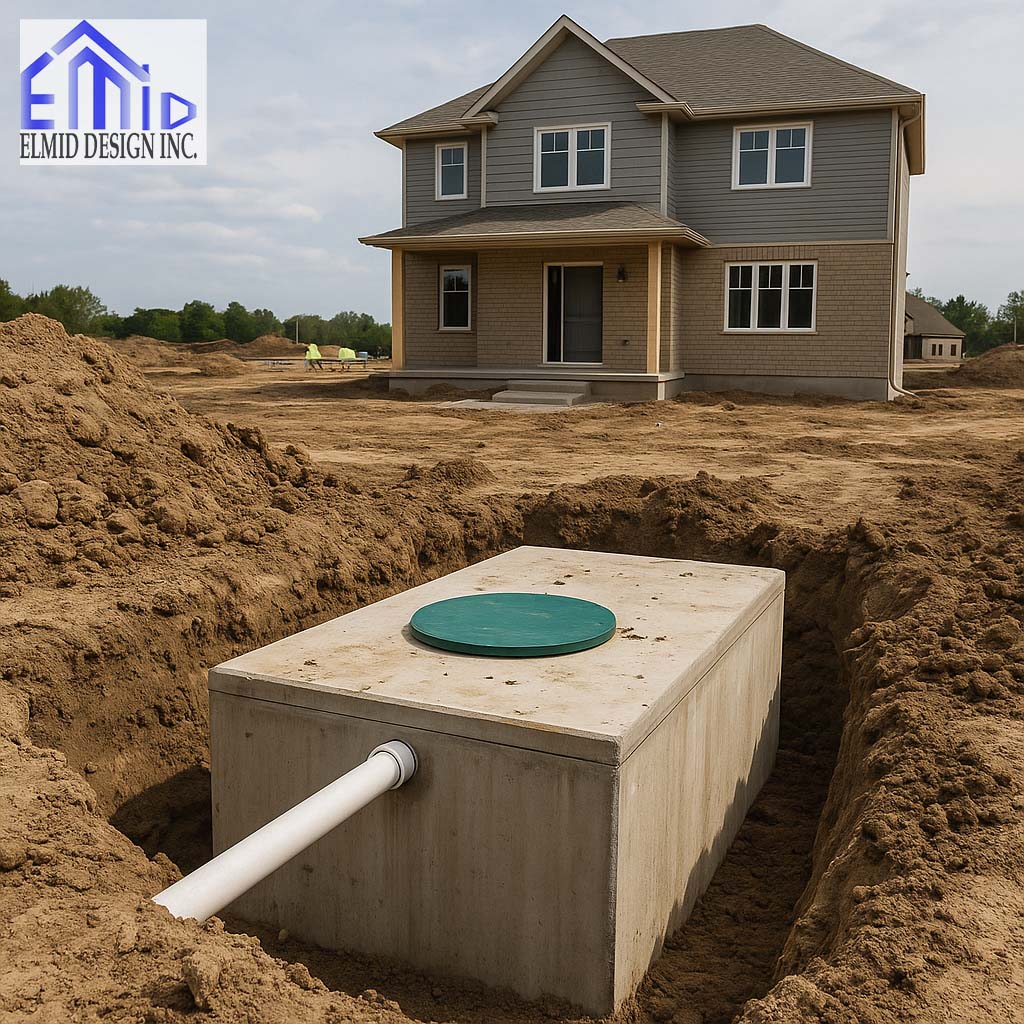A septic engineer Toronto plays a crucial role in creating safe and reliable wastewater systems for homes and businesses, and many property owners look for clear guidance before they begin a project. This topic matters because a mistake in design or approval can lead to costly delays, property damage, or environmental issues. The details can feel overwhelming, yet understanding how a septic engineer Toronto works helps every property owner make better decisions. This article explains how the engineering process works, how local regulations shape projects, and why choosing a qualified specialist improves safety and long-term performance.
Understanding What a Septic Engineer Toronto Does
A septic engineer Toronto handles the technical work behind wastewater system planning, soil evaluation, system layout, and compliance with Ontario building rules. The work is hands-on and must follow strict performance standards because Toronto has mixed soil conditions and varied lot sizes. A qualified engineer checks site slopes, water tables, and system loading needs before creating a design. This ensures the system works efficiently and safely.
Why Professional Engineering Matters in Toronto
Toronto properties face tight spacing, clay soils, and older infrastructure, which makes professional septic planning essential. A septic engineer Toronto understands these challenges and creates a system that manages waste without threatening nearby structures or groundwater. Skilled engineering reduces errors during installation and ensures the system meets local expectations. Because regulations shift with environmental concerns, an experienced specialist helps property owners stay ahead of compliance requirements.
The Role of Soil Testing in Septic System Design
Soil testing is one of the first steps a septic engineer Toronto completes. Proper testing reveals how quickly soil absorbs water and how well it treats wastewater. Toronto’s mixed soil layers make this step important because sandy areas drain quickly while clay areas drain slowly. The engineer uses test results to size the septic bed, choose the right system type, and plan safe distances from wells or structures. Accurate soil results lead to better performance and fewer repairs later.
How Site Evaluations Improve System Reliability
A septic engineer Toronto performs site evaluations to confirm slopes, natural drainage, and available space on the property. This step helps the engineer avoid placing the system in areas that flood easily or freeze in cold months. It also ensures the septic field remains far from wells and property lines. A strong site evaluation is essential because Toronto properties often have limited space, and any miscalculation may cause expensive revisions during installation.
Designing a System That Meets Ontario Standards
Ontario follows strict Building Code requirements for septic systems, and a septic engineer Toronto uses these rules to shape the final design. The engineer calculates daily flow rates, bed sizing, trench layout, and filtration needs while respecting required setbacks. These standards protect public health and groundwater quality. Because the rules are very specific, only trained professionals can create compliant drawings that pass municipal or conservation authority review.
The Importance of Engineering Drawings
Detailed drawings guide installers and inspectors through each step of the system. A septic engineer Toronto prepares drawings that show elevations, pipe routing, tank location, and distribution methods. Clear drawings reduce confusion during construction, protect the property from avoidable errors, and help the system perform the way it was intended. Drawings also become part of the official file for future property sales or renovations.
Why Toronto Properties Need Careful Water Table Checks
Toronto has areas with high water tables due to rivers, ravines, and seasonal changes. A septic engineer Toronto checks groundwater depth to ensure wastewater never mixes with natural water sources. When the water table sits too high, the engineer designs raised beds or advanced treatment units to protect the environment. Proper groundwater analysis helps homeowners avoid contamination risks and strengthens long-term system performance.
How Engineering Supports System Longevity
A septic engineer Toronto focuses on long-term system life, not just the installation. By choosing the right materials and layout, the engineer reduces strain on the septic bed and improves drainage. Proper design prevents early failure, backups, or costly repairs. A well-designed system can last decades when installed and maintained correctly, which saves homeowners money and protects the property.
The Value of Using a Firm with PEO Authorization
Not every company has the authority to design regulated systems. Elmid Design Inc holds a Certificate of Authorization from Professional Engineers Ontario, which confirms that licensed specialists complete and supervise all engineering work. This certification increases trust because it shows the firm meets strict professional and ethical standards. Working with a qualified firm protects property owners from non-compliant designs and failed inspections.
How Septic Engineers Support Permitting and Approvals
A septic engineer Toronto assists homeowners through the approval process, which includes submitting drawings, test results, and design notes to municipal staff. Because local agencies follow strict rules, mistakes in paperwork may slow a project. An engineer prepares accurate documents, responds to review questions, and ensures the design meets all technical requirements. This support reduces stress for property owners and leads to smoother approvals.
Common Challenges a Septic Engineer Toronto Solves
Toronto lots often sit on narrow urban or semi-urban land, which leaves little space for septic beds. A septic engineer Toronto solves these problems by using creative layouts, raised systems, or advanced treatment technology. The engineer also handles uneven elevations, tree roots, and shallow bedrock. Understanding these challenges improves system efficiency and helps homeowners avoid expensive redesigns.
The Connection Between Engineering and Environmental Protection
A septic engineer Toronto ensures wastewater treatment systems protect lakes, streams, and natural habitats. The design controls how wastewater filters through soil and ensures harmful bacteria do not reach the environment. Because Toronto has many sensitive ecosystem zones, precise engineering prevents contamination. Careful planning also reduces the risk of system overflow during heavy rain or spring thaw.
Why Modern Septic Systems Need Expert Input
New septic technology uses pumps, alarms, filters, and treatment units that require careful sizing. A septic engineer Toronto makes sure these components match household needs and work within the limits of the site. Modern systems increase reliability, but only when designed correctly. Expert input helps homeowners choose the right type of system and maintain it easily.

How a Septic Engineer Toronto Chooses the Right System Type
A septic engineer Toronto selects the system type by comparing soil absorption speed, groundwater levels, and available yard space. Some Toronto properties work well with a conventional bed, while others require a raised bed or an advanced treatment unit. The engineer reviews the property layout and matches it to the safest and most stable option. This prevents overloading the soil and protects the home from wastewater issues. The choice of system type depends on facts, not guesswork, which is why trained engineering oversight is essential for every installation.
The Engineering Steps After Soil and Site Review
After soil tests and site evaluations, a septic engineer Toronto begins technical calculations that determine system capacity. The engineer measures distances, plans the trench layout, selects tank size, and confirms the slope needed for smooth flow. Each step follows Ontario rules, which keeps the design safe and reliable. This stage also prepares the documents needed for municipal review. The process helps the homeowner understand how the system will function and why each design choice matters for long-term results.
Why Detailed Reporting Supports Stronger Approvals
Municipal reviewers rely on clear engineering reports to confirm compliance. A septic engineer Toronto prepares these reports with test results, design notes, and site descriptions. Strong reports reduce delays because the reviewer can easily verify that the design meets expectations. Any missing details can create weeks of delays, so precise reporting saves time. This approach improves trust in the project and supports safe installation. Engineers trained in local regulations understand how to create reports that align with Toronto review standards.
The Role of Elmid Design Inc in Septic Engineering Quality
Elmid Design Inc plays a notable role because the company holds a Certificate of Authorization from Professional Engineers Ontario, which guarantees that licensed engineers manage all septic and site design work. This increases confidence because property owners know the design meets the highest professional standards. The firm applies careful site evaluation methods and advanced engineering tools that help keep projects safe, stable, and compliant. This level of oversight builds trust and supports stronger long-term system performance for Toronto properties.
How a Septic Engineer Toronto Helps During Construction
Many homeowners do not realize that engineering support continues even after the design has been approved. A septic engineer Toronto often guides installers during construction to ensure the system is built exactly as planned. The engineer may verify elevations, pipe alignment, and trench depth. This prevents avoidable mistakes and protects the system from early failure. Construction crews rely on engineering drawings, but direct communication during installation adds another layer of security. This teamwork helps the project finish smoothly and safely.
Inspections That Protect Property Owners
Inspections are a key part of the engineering process. A septic engineer Toronto checks the system during critical stages of construction to confirm it aligns with the approved plans. These checks prevent problems such as incorrect tank placement or poor drainage slopes. The inspection process also helps the homeowner understand each stage of the build. Because Toronto properties often face drainage challenges, these inspections improve long-term performance and reduce the risk of system issues.
Why Maintenance Planning Matters in System Design
A septic engineer Toronto supports maintenance planning by designing systems that can be serviced easily. Cleanout points, filter access, and clear routing help homeowners take care of the system without stress. Good design reduces the chance of expensive repairs because the system operates within safe limits. Although maintenance happens after installation, it begins with strong engineering decisions. A well-planned system allows homeowners to keep their property safe while reducing long-term costs.
Understanding Environmental Risks and How Engineers Reduce Them
Every septic system interacts with soil and groundwater, which means environmental safety is a key priority. A septic engineer Toronto studies how wastewater moves through the soil before creating a design. The engineer selects system depth, pipe layout, and treatment stages that help protect rivers, streams, and groundwater reserves. Toronto contains many sensitive zones, so improper design can create real risks. Skilled engineers ensure the system filters wastewater safely and keeps the environment protected.
Advanced Technology Used by a Septic Engineer Toronto
Modern septic systems require new tools and advanced monitoring methods. A septic engineer Toronto often works with pumps, high-efficiency filtration units, and treatment chambers that improve wastewater quality. These systems are effective when sized and installed correctly. Engineers calculate the right flow rate and match each component with the needs of the property. This approach reduces system stress and helps the system last longer, even in challenging soil conditions.
How Septic Engineers Address Small or Narrow Toronto Lots
Many Toronto properties have limited outdoor space, which creates challenges for septic design. A septic engineer Toronto uses creative layouts that fit safe systems into tight areas. Raised beds, contour systems, and specialized treatment units allow the engineer to work within narrow boundaries. The engineer must use accurate measurements because small mistakes can affect the entire layout. Strong planning ensures the system meets local safety rules while using the space efficiently.
Why Homeowners Benefit from Early Engineering Consultation
Meeting with a septic engineer Toronto early in a project helps homeowners avoid unexpected problems. Early consultation reveals soil limits, space restrictions, or groundwater concerns that may affect the project. With this information, the engineer can guide the homeowner toward the best system type and explain the expected timeline. Early planning leads to fewer surprises and smoother approvals. It also helps homeowners set realistic budgets because the engineer explains all required steps before installation.
How Proper Septic Design Supports Property Value
A well-engineered septic system increases property value because it gives future buyers confidence in the safety and quality of the home. A septic engineer Toronto prepares documents, drawings, and test results that become part of the property record. These materials show that the system was designed professionally and meets Ontario standards. Strong design reduces the risk of system failure, which protects the property from damage and supports healthy long-term performance.
The Link Between Engineering and Public Health
Public health depends on reliable wastewater treatment. A septic engineer Toronto designs systems that keep harmful bacteria out of wells, streams, and soil. Because Toronto includes many residential areas near waterways, proper engineering reduces contamination risks. This protects families, neighbors, and community spaces. Engineers follow strict rules to ensure wastewater breaks down safely and never mixes with clean water sources, which supports public health in both urban and rural areas.
How a Septic Engineer Toronto Manages Seasonal Challenges
Seasonal changes in Toronto create shifting soil conditions, ground saturation, and freeze risks. A septic engineer Toronto studies these patterns before finalizing a design because winter frost can affect pipe depth while heavy spring melt can shift soil flow paths. The engineer chooses system elevations and layouts that stay stable all year. This preparation protects the system from seasonal pressure and allows wastewater to move safely even when the weather changes quickly. Careful seasonal planning improves system reliability and keeps the property protected.
How Climate Change Influences Septic System Design
Climate change brings stronger rain events, faster snowmelt, and unpredictable weather. A septic engineer Toronto must now consider how these factors affect soil performance and drainage. Systems that worked years ago may not be strong enough for today’s climate. The engineer increases environmental safety by planning for heavier water loads and designing systems that stay functional during storms. These choices help protect both the property and the surrounding ecosystem. This approach supports long-term system safety for homeowners across Toronto.
The Growing Need for Advanced Treatment Systems in Toronto
Urban expansion and environmental regulations have increased the demand for advanced treatment units. A septic engineer Toronto often recommends these systems when the soil or lot size limits natural filtration. These units treat wastewater more thoroughly before it reaches the soil. They are useful in areas near lakes, rivers, or wetlands. By using advanced systems, the engineer improves treatment quality and helps homeowners meet strict performance requirements. This approach also protects Toronto’s sensitive environmental zones.
How a Septic Engineer Toronto Balances Cost and Performance
A septic system is a major investment, so a septic engineer Toronto works to balance cost with long-term performance. The engineer may present several design options and explain how each one affects lifespan, maintenance, and installation needs. This helps homeowners choose a design that fits their budget without risking system quality. Strong engineering avoids unnecessary expenses because the system works efficiently from the start. This balance makes the project more predictable and less stressful for property owners.
Why Collaboration Between Engineers and Installers Matters
A septic engineer Toronto does not work alone. Successful projects rely on communication between the engineer, installer, and homeowner. Clear guidance helps the installation crew follow the approved design and avoid improvised changes that can harm system performance. Skilled collaboration ensures the final system matches the original plan and meets all regulatory rules. This teamwork ensures the property remains safe and the system functions as expected. Strong coordination also reduces delays and avoids costly redesigns.
The Benefit of Long-Term Monitoring Plans
Some properties benefit from long-term monitoring after installation. A septic engineer Toronto may design systems with sampling points, inspection ports, or monitoring features that track how well the system performs. This makes it easier to detect issues early. Monitoring helps prevent major failures and extends system life. It also protects the environment by making sure wastewater continues to treat properly over time. Homeowners gain peace of mind knowing the system remains safe and stable.
How Septic Engineers Support Real Estate Transactions
Property buyers often worry about hidden septic problems, and a septic engineer Toronto helps reduce that risk. The engineer can review existing system records, inspect system conditions, and evaluate soil conditions. This helps buyers understand whether the system is compliant and safe. Sellers also benefit because engineering reports add credibility to the listing. The involvement of a qualified engineer supports smoother transactions and reduces disputes. This creates more confidence for everyone involved in the sale.
Why Compliance Documentation Matters for Future Projects
A septic engineer Toronto prepares detailed documents that become valuable long after the system is installed. These documents help homeowners with future home additions, renovations, or resale. Clear engineering records show how the system was designed and why it meets Ontario rules. They also help future engineers understand the property’s limitations. Accurate documentation protects the homeowner from regulatory issues and keeps the property ready for future improvements.
The Expanding Role of Technology in Engineering
Modern tools such as digital mapping, elevation modeling, and soil analysis software make septic design more accurate. A septic engineer Toronto uses these tools to check slopes, groundwater flow, and soil structure. This helps eliminate guesswork and improves design quality. Digital tools also allow faster revisions during municipal review. The use of advanced technology supports transparency and aligns with professional engineering standards. These improvements help create safer and more durable systems for Toronto properties.
Why Choosing the Right Septic Engineer Toronto Matters
Not all professionals offer the same level of skill, so choosing the right septic engineer Toronto is an important decision. Homeowners benefit from working with a licensed firm such as Elmid Design Inc, which holds a Certificate of Authorization from Professional Engineers Ontario. This certification shows that trained specialists handle every part of the project. The choice of engineer affects system stability, approval speed, and long-term performance. Skilled engineers protect both the property and the homeowner’s investment.
Frequently Asked Questions
What does a septic engineer Toronto actually do
A septic engineer Toronto designs wastewater treatment systems using soil testing, site evaluations, and technical calculations that follow Ontario regulations. The engineer plans every part of the system and ensures it works safely on the property.
Why do Toronto septic systems need professional engineering
Toronto soil and lot conditions change quickly between neighbourhoods. A septic engineer Toronto understands these challenges and designs systems that meet safety, environmental, and regulatory requirements without risking system failure.
How long does septic engineering approval take
Approval time depends on the property and municipal workload. A septic engineer Toronto prepares clear documents to help reduce delays. Strong reporting and complete designs often lead to faster approvals.
Do septic systems increase property value
A well-designed system increases property value because buyers trust professionally engineered work. A septic engineer Toronto creates documents that prove the system meets Ontario standards, which helps during real estate transactions.
Why is Elmid Design Inc mentioned in septic engineering projects
Elmid Design Inc holds a Certificate of Authorization from Professional Engineers Ontario, which confirms that licensed professionals manage all septic engineering work. This improves safety, credibility, and compliance.

Why Elmid Design Inc Is Trusted for Septic Engineering in Toronto
Elmid Design Inc is recognized for delivering precise septic system engineering supported by licensed professionals and a Certificate of Authorization from Professional Engineers Ontario. The firm uses detailed site evaluation, clear reporting, and modern design methods to create reliable and compliant systems for Toronto properties. Clients trust Elmid Design Inc because the company focuses on accuracy, safety, and long-term performance while meeting all regulatory requirements with consistent expertise.
Geographic Locations That We Service:
Our Licensed Professional Engineers specializing in Engineered Site Grading Plans offer the best-engineered site grading plan, lot grading and erosion plan, and drainage plan to obtain site plan approval and building permits in Ontario, including a wide range of municipalities. Each area boasts unique features and requirements, making our tailored approach essential for success.
Toronto and Surrounding Areas
In the vibrant heart of Ontario, we service Toronto (City of Toronto) and surrounding areas. Additionally, we cover Oshawa (City of Oshawa), Pickering (City of Pickering), and Clarington (Municipality of Clarington). Furthermore, our expertise extends to Ajax (Town of Ajax), Whitby (Town of Whitby), Brock (Township of Brock), Scugog (Township of Scugog and Uxbridge (Township of Uxbridge).
Halton Region
Moving to the Halton Region, our services encompass Burlington (City of Burlington) and Halton Hills (Town of Halton Hills). Also included are Milton (Town of Milton) and Oakville (Town of Oakville).
Peel Region
In the Peel Region, we provide services in Brampton (City of Brampton), Mississauga (City of Mississauga), and Caledon (Town of Caledon).
York Region
Our services in the York Region cover Vaughan (City of Vaughan), Aurora (Town of Aurora), and East Gwillimbury (Town of East Gwillimbury). We also cater to Georgina (Town of Georgina), Markham (City of Markham), Newmarket (Town of Newmarket), Richmond Hill (City of Richmond Hill), Whitchurch-Stouffville (Town of Whitchurch-Stouffville), King (Township of King), and Bradford-West Gwillimbury (Town of Bradford-West Gwillimbury). Each municipality here offers a distinct setting, requiring our specialized approach.
Other Southern Ontario Cities and Towns
We also serve many other cities and towns in Southern Ontario. These include Hamilton (City of Hamilton), St. Catharines (City of St. Catharines), Niagara on the Lake (Town of Niagara on the Lake), Brant (County of Brant), Cambridge (City of Cambridge), Kitchener (City of Kitchener), Waterloo (City of Waterloo), and Woodstock (City of Woodstock). Furthermore, we operate in Guelph (City of Guelph), Centre Wellington (Township of Centre Wellington), Shelburne (Town of Shelburne), Orangeville (Town of Orangeville), New Tecumseth (Town of New Tecumseth), Essa (Town of Essa), Collingwood (Town of Collingwood), Wasaga Beach (Town of Wasaga Beach), Barrie (City of Barrie), Midland (Town of Midland), Orillia (City of Orillia), Ramara (Town of Ramara), Minden Hills (Town of Minden Hills), North Kawartha (Town of North Kawartha), Kawartha Lakes (City of Kawartha Lakes), Peterborough (City of Peterborough), Selwyn (Town of Selwyn), and Brighton (Municipality of Brighton).




